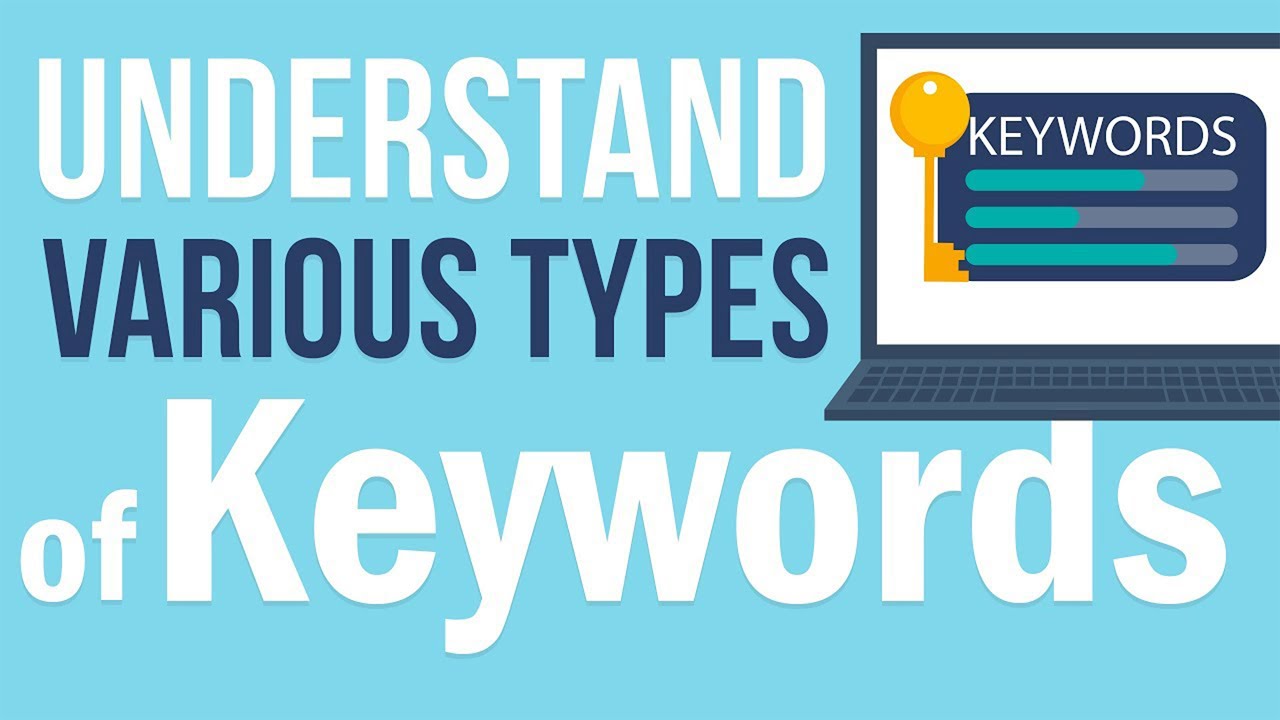Digital marketers need to be able to do effective advanced keyword researchmore and more these days.
Not only do they need to know how tomake a good keyword list for PPC and SEO, but smart contentmarketers also use keyword research to figure out what they should write about and what phrases they should use.
But you probably already know how important keyword research is if you're reading this.
You're just here to learn how to do it better or more effectively.
Importance Of Keyword Research

Importance of Keyword Research
Between 70% and 90% of the traffic to building product companies' websites comes from search engines like Google, and 93% of all online sales start with a search query.
By making your content and webpages SEO-friendly, you can:
- Get more people to visit your website.
- Boost conversion rates in small, local markets
- Improve brand awareness and trust by making the brand more visible.
With keyword research backed by data, you can make your businessmore competitive in a changing market by focusing on high-intent customers who you can lead from the "Information Gathering" stage of the buyer journey to the end: buying from your website (or partnered dealers).
If you sit down to research popular keywords, you can stop "guessing" and start getting results.
Know Your Keyword Intent
Understanding keyword intent means knowing what the user is trying to find.
There are four different kinds of keyword intent: informational, commercial, navigational, and transactional.
When a user searches for information, they want to learn more about a subject or product.
When a user has commercial intent, they want to learn more about different brands, products, or services.
When a user wants to go to a certain page they already know about, this is called navigational intent.
When a user wants to buy something, this is called "transactional intent."
By figuring out why the user is searching, you can create content with a specific goal in mind that fits with your overall keyword strategy.
Different Types Of Keywords

SEO Tutorial | Types of Keywords | Get Better Ranking
Long-Tail Keywords
Another type of advanced keyword is the long-tail keyword.
These are longer search queriesthat are more specific to the topic the user is looking for.
For example, if you want to find sneakers, you could type "sneakers" or "white sneakers" into the search bar.
This would be your "keyword" or "search query."
The more specific a phrase is, the longer it is.
Shorter words and phrases aren't as clear, so searches tend to be more general.
Branded Keywords
Branded keywords are keyword ideas that have to do with a certain company or service.
Most of the time, the brand or service name is part of the search query.
This is great if the user wants to find a certain businessor service.
Non-Branded Keywords
Non-branded keywords are another type of advanced keyword that doesn't mention a specific brand or company service.
This makes it easier for the user to find what they are looking for.
6 Advanced Keyword Research Strategies You Can Do Today
Researching keywords can be done in a number of various methods, none of which are required to be very difficult.
When you market your businessonline with the assistance of various technologies, a significant portion of the work is completed for you.
Uncover Your Competitors’ Top Keywords
If you want to stay ahead of the game and keep up with the competition, one of the best things you can do is investigate the areas in which your competitors are prospering while you are lagging behind.
Not only are you likely to find content that motivates you to produce an article of your own, but if you use Ahrefs.com or Semrush.com, you can also do the following without any additional effort:
- Conduct research on the keywords for which your competitors rank.
- Find existing content pieces that are ranking for valuable keywords and generating the most organic traffic, and use those to create new content.
- Find important keyword gaps that your competitors rank for but you don't, and investigate why this is the case.
Taking a more focused approach to keyword research enables you to capitalize on the achievements of your competitors and attract some of their website visitors to your own site.
Research And Understand The Industry
Before you start looking for keywords, it is in your best interest to do some research and get a good understanding of the subject matter that your service page or product offering is about.
You have an obligation to discover the company's or brand's intended market position or image.
You will come away from this with a better understanding of how to compile an exhaustive list of keywords to target.
Exploring the website and participating in any customer forums will also provide a wealth of information that will be useful when selecting the appropriate keywords.
Find Low-competition, High-volume Keyword Variations
After you've done steps one and two, the most important part of your SEOcontent strategyis to find a list of keywords that your website can easily rank for.
To know where your website stands, you'll need to know its Domain Authority(DA) and look at the SERPs to see if there are ways to rank higher than websites with lower DAs.
When making your target keyword list, keep the most relevant keywords that have a low competition score or a low keyword difficulty score and as many or as many as possible searches.
Search volume is the average number of times a term is looked up over the course of a year.
For example, if the average monthly search volume for the keyword "sneakers" is 500,000, that means that on average, that many people are looking for sneakers every month.
Low competition keywords are easier to rank for because they don't require a lot of backlinksand tend to have less competitive domains on page one of Google's search results page.
With SEMrush's keyword difficulty score tool, you can see the number of searches and the keyword difficulty score.
This will help you narrow down your keyword list and choose your final target keywords for a content marketingcluster.
You should also be creative and try to come up with different ways to use the search terms or keyword phrases you come up with.
This is a great way to get targeted traffic to your site that is more likely to turn into leads or sales.
Utilize Forums & QA Websites
One of the more well-kept secrets regarding keyword research tactics is the fact that it is possible to frequently find "keyword diamonds" that have been concealed within industry forums and Q&A websites.
You can frequently accomplish this task manually by researching pertinent topics on discussion boards, social mediaplatforms, and question-and-answer websites such as Reddit and Quora.
You will gain a better understanding of the themes that are essential to your customers, workers, and rivals by actively participating in conversations with direct stakeholders.
You can also find out opinions and feelings regarding the goods that you sell, particularly with regard to areas in which you could make adjustments.
It's common knowledge that people enjoy expressing their dissatisfaction with things, and online discussion boards are popular gathering locations for those individuals to do so.
Latent Semantic Indexing (LSI)
The practice of assisting Google in defining the context of the topic of a webpage by making use of related phrases is referred to as latent semantic indexing, or LSI for short.
Let's pretend one of the articles on your website is about automobiles.
How exactly does Google plan to identify the automobiles that you are discussing?
Is this a piece of writing about automobiles, or is it about the Disney film Cars?
Google makes this determination using latent semantic indexing (LSI).
If the movie Cars were the primary focus of our essay, for instance, then we would sprinkle the text with a variety of terms and phrases connected to the subject, such as the following:
- Lightning McQueen
- Animated movie
- Disney
In addition, pertinent terms and expressions, such as the following would be included in the text of the article if it discussed classic automobiles:
- Rims
- Racing
- Automobiles
- Classic cars
Utilizing Google as a tool to identify comparable phrases to add to your writing is among the most effective ways to do so.
You may find out which comparable terms and phrases are shown in the top results by Googling for a query you want to score highly for and by observing which ones come up.
We can utilize LSI to help limit the use of unnecessary keywords in our articles and to provide Google with a better grasp of what they are about.
Question-Based Search Terms

4 Ways to Scale Question-Based Keyword Research (With Working Examples)
Because question-based searches are so common, Google has begun incorporating an answer box, also known as highlighted snippets, into the search engineresults page (SERP) landscape for certain search terms:
In this context, it is helpful to think about the three different kinds of search queries.
Informational queries are searches conducted by users in which they are looking for specific pieces of data.
When a user has a certain goal in mind and wants to locate a particular website or brand, such as Malin + Goetz, this is an example of a navigational query.
Transactional inquiries are those in which the user intends to complete a purchase.
Targeting informative searches in this manner can be an excellent approach to creating brand awareness and establishing your website as a voice of authority within your specialized field of interest.
If "inform, don't sell" is the guiding principle behind content marketing, then responding to the questions that you are aware users are seeking answers to is an excellent method to put this principle into practice.
People Also Ask
What Is Advanced Keyword Research?
Within the realm of search engine optimization(SEO), the most essential component of the strategy is in-depth keyword research.
Why?
A good content marketing campaign, one that ranks well for relevant search queries and produces qualified traffic, cannot be built without first conducting a thorough keyword study.
What Is A Keyword Research Strategy?
The process of finding and evaluating search phrases that users enter into search engines with the intention of utilizing that data for a particular purpose.
Most commonly for search engine optimization (SEO) or general marketing purposes, is referred to as keyword research.
How Many Hours Does Keyword Research Take?
The process of developing a keyword strategy follows the completion of keyword research, which typically takes roughly 10 days.
Using the findings from these keyword research projects, an SEO campaignwill construct a keyword plan with the goal of increasing organic traffic to your website.
Conclusion
In a nutshell, conducting advanced keyword research is essential since it offers helpful insights that are necessary for developing an effective content marketing plan.
It is also vital to learn how to differentiate between the many sorts of search queries, such as keyword intent, long-tail, branded, and non-branded searches, in order to assist with keyword research.
It is important to have advanced SEO, and it all starts with keyword research!
